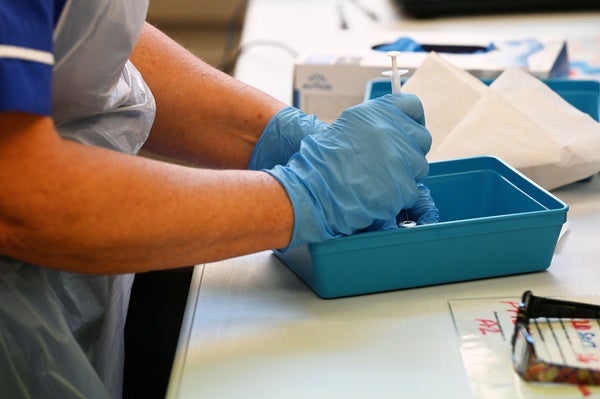 |
| November 15, 2021 |
 |
| Public Health How Do People Resist COVID Infections? Immune cells might abort SARS-CoV-2 infection, forestalling a positive PCR or antibody test, a study in hospital workers suggests By Max Kozlov,Nature magazine | |
| |
| |
| |
| |
| |
| |
| Dinosaurs Flocking Together May Have Helped Dinosaurs Dominate the Earth A fossil bed in Patagonia provides evidence of complex social structure in dinosaurs as early as 193 million years ago. And scientists say that herding behavior could have been key to the beasts' success. |  | By Christopher Intagliata | 02:31 | | | |
| |
| |
| |
| |
FROM THE STORE
 | | | |
| |
LATEST ISSUES
 |
| |
| Questions? Comments?  | |
| Download the Scientific American App |
| |
| |




